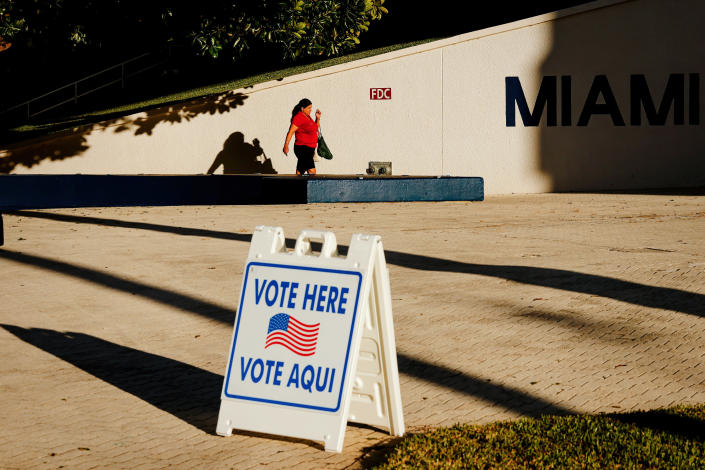Are the Polls Wrong Again?
The final polls in the 2020 presidential election overstated Joe Biden’s strength, especially in a handful of states.
The polls reported that Biden had a small lead in North Carolina, but he lost the state to Donald Trump. The polls also showed Biden running comfortably ahead in Wisconsin, yet he won it by less than a percentage point. In Ohio, the polls pointed to a tight race; instead, Trump won it easily.
Sign up for The Morning newsletter from the New York Times
In each of these states — and some others — pollsters failed to reach a representative sample of voters. One factor seems to be that Republican voters are more skeptical of mainstream institutions and are less willing to respond to a survey. If that’s true, polls will often understate Republican support, until pollsters figure out how to fix the problem.
This possibility offers reason to wonder whether Democrats are really doing as well in the midterm elections as the conventional wisdom holds. Recent polls suggest that Democrats are favored to keep control of the Senate narrowly, while losing control of the House, also narrowly.
But the Democrats’ strength in the Senate campaign depends partly on their strength in some of the same states where polls exaggerated Democratic support two years ago, including the three that I mentioned above: North Carolina, Ohio and Wisconsin.
Nate Cohn, The New York Times’ chief political analyst, calls it “a warning sign” — for both the Democratic Party and for the polls.
Or is 2022 different?
Cohn is also careful to acknowledge what he doesn’t know, and he emphasizes that the polls might not be wrong this year in the same way that they were wrong in 2020. It’s even possible that pollsters are understating Democratic support this year by searching too hard for Republican voters in an effort to avoid repeating recent mistakes.
The unavoidable reality is that polling is both an art and a science, requiring hard judgments about which kinds of people are more or less likely to respond to a survey and more or less likely to vote in the fall. There are still some big mysteries about the polls’ recent tendency to underestimate Republican support.
The pattern has not been uniform across the country, for instance. In some states — such as Georgia, Nevada and Pennsylvania — the final polls have been pretty accurate lately. This inconsistency makes the problem harder to fix because pollsters can’t simply boost the Republican share everywhere.
There is also some uncertainty about whether the problem is as big when Trump is not on the ballot — and he is obviously not running for office this year. Douglas Rivers, the chief scientist of the polling firm YouGov, told me that he thought this was the case and that there is something particular about Trump that complicates polling. Similarly, Nate noted that the polls in the 2018 midterms were fairly accurate.
Finally, as Cohn points out, the 2022 campaign does have two dynamics that may make it different from a normal midterm and that may help Democrats. The Supreme Court, dominated by Republican appointees, issued an unpopular decision on abortion, and Trump, unlike most defeated presidents, continues to receive a large amount of attention.
As a result, this year’s election may feel less like a referendum on the current president and more like a choice between two parties. Biden, for his part, is making this point explicitly. “Every election’s a choice,” he said recently. “My dad used to say, ‘Don’t compare me to the Almighty, Joey. Compare me to the alternative.’”
As Cohn told me:
Just about every election cycle, there’s an argument for why, this time, things might be different — different from the expectations set by historical trends and key factors like the state of the economy or the president’s approval rating.
The arguments are often pretty plausible. After all, every cycle
is
different. There’s almost always something unprecedented about a given election year. There’s always a way to spin up a rationale for why old rules won’t apply.
In the end, history usually prevails. That’s a good thing to keep in mind right now as Democrats show strength that seems entirely at odds with the long history of the struggles of the president’s party in midterm elections.
But this cycle, there really is something different — or at the very least, there is something different about the reasons “this cycle might be different.”
